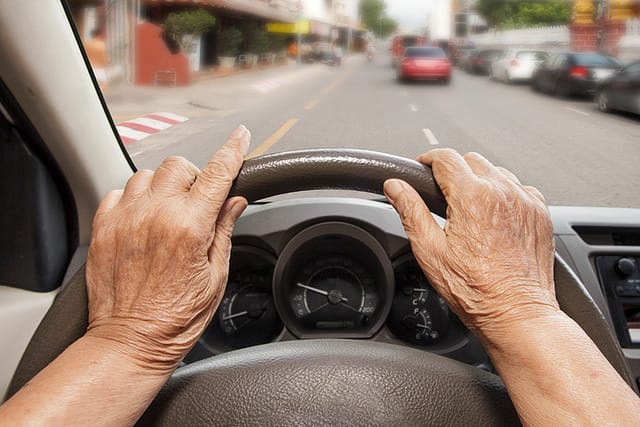By 2025, the demographic group of drivers 65 years and above is expected to increase to 25% of the licensed driving population. Although these drivers pose significantly less risk than those under 25, senior drivers are approximately 60% more likely to cause accidents than younger adult drivers between the ages of 25 and 64. Age-related declines in cognitive functioning, vision impairment, and medications may be to blame. Fortunately, there are a number of steps older drivers and their loved ones can take to help prevent injuries and deaths from car accidents.
How Serious Is the Problem?
Approximately 7,700 drivers over 65 were killed in motor vehicle accidents in 2017. Another 257,000 were injured so severely that they required emergency medical attention. While senior drivers represent just 15% of all licensed drivers, they cause 7% of two-vehicle injury and fatality accidents.
A More Vulnerable Population
Older drivers are also more vulnerable to suffering permanently disabling or fatal injuries in a crash. This is likely due to more fragile bones and medical conditions like diabetes and heart disease that make recovery more difficult. Drivers over 85 are at the highest risk of getting killed, and males are more likely to die in a car accident than females.
Frequency in Driving
Older drivers drive 38% fewer miles when compared to adult drivers in other age groups. Although licensed drivers in the youngest age group drive significantly more miles per driver than older drivers, the crash death rate per mile driven is much higher for seniors.
Practicing Safer Driving Habits
Older adult drivers, however, typically change their driving habits to compensate for vision problems, cognitive decline, and health problems that come with age. These may include:
- Frequent wearing of seat belts
- Driving in safer weather conditions
- Avoiding drinking and driving
- Obeying the speed limit
Driving in Safer Conditions
In most cases, an older driver will avoid driving during peak traffic hours, late at night, or in unsafe weather conditions. This high degree of self-regulation reduces the risk of accidents for seniors.
Older Drivers Frequently Observe Traffic Rules
Older drivers are more likely to observe traffic rules than younger drivers. Most older drivers wear seat belts. In addition, older drivers tend to avoid intoxicated driving as this will further impair sight and judgments and reduce coordination. Finally, older drivers more frequently observe speed limits.
Passengers in the Vehicle
Although older drivers generally have fewer passengers riding along than younger drivers, a passenger in a senior driver’s car is approximately 573% more likely to be killed in a crash than someone in a younger person’s vehicle. This may, however, be attributable to the fact that senior drivers tend to have passengers who are elderly.
Health Issues That Impact Driving Ability
There are a number of age-related health issues that may impact an older person’s ability to drive including vision changes, hearing loss, limited mobility, reduced strength, and slower reaction times. Parkinson’s disease, stroke, and Alzheimer’s disease and other forms of dementia can significantly impact an older person’s driving ability as well.
Additionally, prescription medications that are intended to treat these and other conditions often come with a host of side effects that affect driving performance. Alarmingly, however, while over 75% of senior drivers admit taking medications, a recent study revealed that less than one-third reported that they were aware of the impact their medications had on their ability to drive. Many of these medications cause drowsiness, dizziness, slowed reaction time, vision problems, disorientation, and an inability to focus.
Addressing an Older Person’s Impaired Driving Ability
There are a number of steps people can take when they suspect their older loved one may be having difficulty driving. These include seeking a driving assessment, making sure they’re using their hearing aid, reporting the unsafe driver to the local DMV, or even enrolling the driver in a driving course designed to seniors to help the loved one brush up on his or her skills.

 2018 ·
2018 ·
Leave a Reply